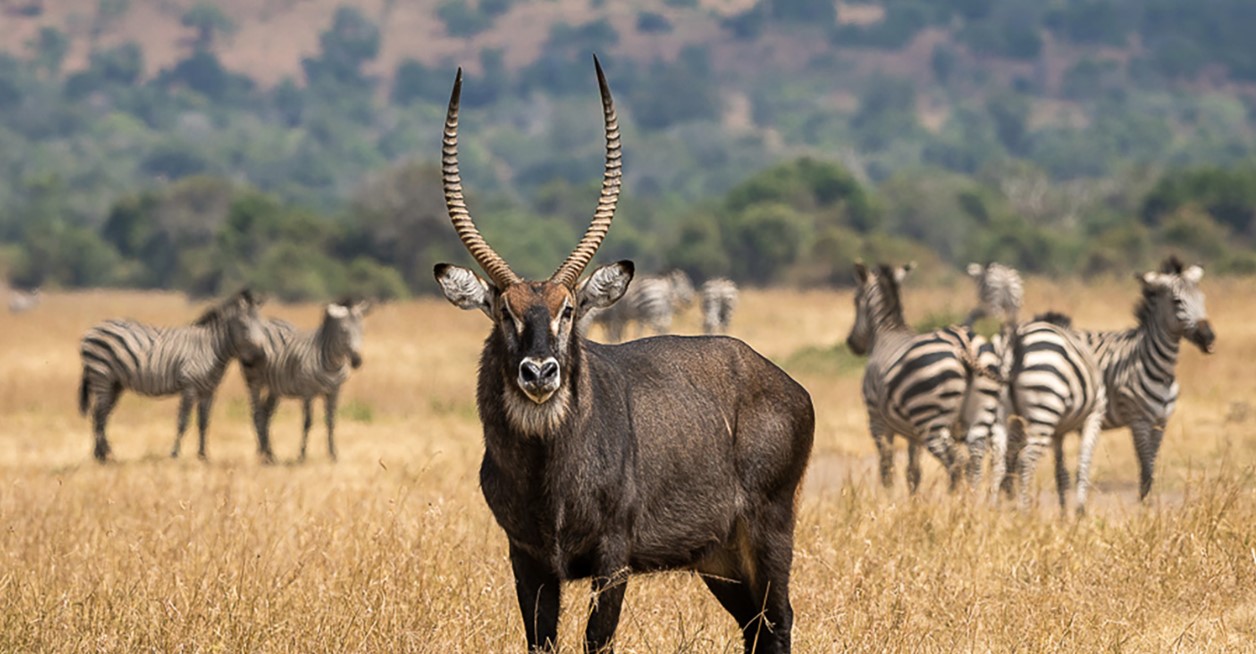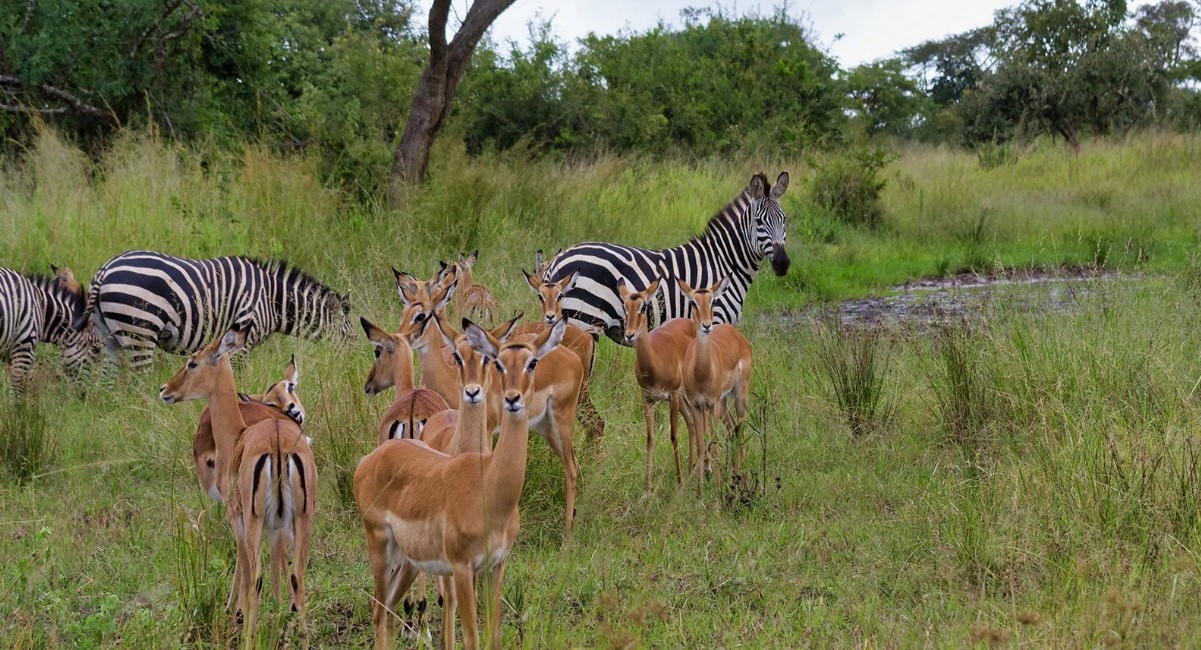
Akagera national park in Rwanda
Akagera national park in Rwanda is about 110 km from Kigali the capital of Rwanda, which is about a 2 ½ hour drive. It is beautiful park with lush green scenery and lots of wildlife and birds to see.
Most favored and used means of transport to the park is by car. For the most part the road is quite good. There might be a few bumpy spots along the way, but that shouldn’t stop you from making the trip. The last 28km of the 110km from Kigali are mostly dusty, and so are all the roads inside the park. 4X4 safari vehicles are recommended especially if you are traveling during the rainy season.
How To get To Akagera national park in Rwanda
After getting to Kigali either by air or bus road, you can start of your Akagera safari tour from the city center. From Kigali drive out of town towards the airport. Just before you reach the airport, about 100m out, take a left turn. You will then be heading east towards Rwamagana. Drive through Rwamagana and on to Kayonza. When you get to Kayonza, take the right turn at the roundabout and drive on till you get to a Discentre station on the left side of the road as you get into the town of Kabarondo. Take a left turn onto that road and drive on for about 15km till you come to a junction at Rwinkwavu. You will see a signpost that reads Akagera national Park on the left. The park gates are about 13km ahead after the signpost.
4×4 vehicles can be arranged by your safari operator of choice. Most tour companies will provide a driver and a guide, or if you are very adventurous you can opt for drive yourself, and depend on maps and directions to get you. It will all be fun and exciting. Several safari companies in operating in Rwanda have outlets and connections with major hotels in Kigali, so it should be easy to get in touch with one and arrange for a trip to the park.
There is a maximum on only 12 visitors that are to be accommodated within six tents that contain camp beds as well as the beddings, solar lights, camp chairs and the reed matt floors. Each of the tents has got a rural outdoor bath room with a hot water delivered on a daily basis. Breakfast, lunch and dinner is also included within the rate and are served in the dinning tent each day. You can enjoy the excitement of staying in a pop up camp that moves around Akagera national park in Rwanda.
The main highlights
The seasonal pop up camp which shows the different areas of Akagera national park in Rwanda
Intentions to leave a light footprint on earth
The park is not crowded and its often undervalued, home to over 500 species of birds
The camp only houses a maximum of 12 guests, and this means that guests can enjoy an intimate safari adventure
The meals are also included in the rate.
The word Karenge also means a “small foot” in Kinyarwanda language. This also supports well with the camp’s goal to be so eco-friendly and leaves as a small environmental foot print as possible. Since it’s a seasonal camp, it’s open for some periods during each year and changes locations each and every time. This camp is constructed with the ecofriendly materials that are all removed when the camp is decomposed at the end of a season. It’s also a very close atmosphere, since the whole camp fits 12 people across the 6 tents.
In the year 2016, this camp was opened from June to August and December to February 2017. Since it was in the northern end of the park, and I doubt you will have the same lakeside view, and it’s so fun. The cost is also $150 per person for the shared tent. As a prudent traveler, I wince at spending even $50 per night on a room, but you can also be happy that all continues to wards the camps conservation efforts. I also recommend this camp for a weekend and it will be so romantic for a couple.
These tents are also raised which reduces the risk of animal entry, and also increases safety. Each of tents has two comfy beds, the couple lamps as well as the standard hotel room usual basics like the towels and the toiletries. One of my bath rooms was about 10 paces from my tent and wasn’t fully surrounded, which was fine by day and a little threatening at night. There was also something liberating about knowing it all hangs out with nature and common sense told me to look into the outside, and in case an animal decided to amble by.




